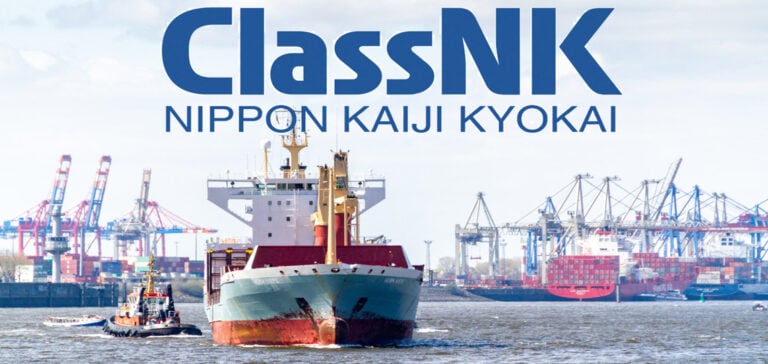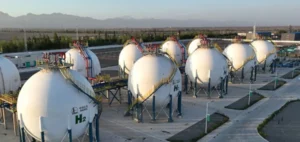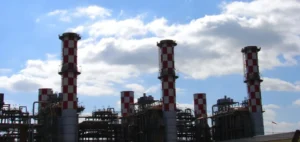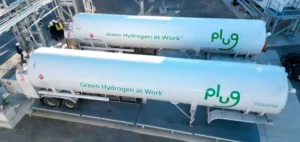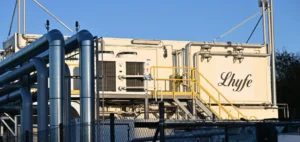A Japanese consortium obtains an agreement in principle (AiP) for the package layout concept of a hydrogen-powered ship from Nippon Kaiji Kyokai, or ClassNK, the companies announced on October 19, marking progress towards a pilot operation planned for around fiscal year 2027-28 (April to March). This follows a risk assessment by five companies – Mitsui O.S.K Lines, MOL Drybulk, Onomichi Dockyard, Kawasaki Heavy Industries and Japan Engine Corporation – of a hydrogen-powered multipurpose vessel, the companies said. The companies added that this marked the world’s first AiP certification for a vessel equipped with a low-speed two-stroke engine running on hydrogen as the main propulsion engine.
Consortium operations
As part of the pilot project adopted by the state-funded Green Innovation Fund of the Organization for the Development of New Energies and Industrial Technologies, the consortium will conduct demonstration operations of the vessel for two years from fiscal year 2027-28. During this period, he will develop the marine hydrogen engine and fuel tank, as well as the fuel supply system. By fiscal 2026-27, Japan Engine’s low-speed hydrogen-powered two-stroke engine and Kawasaki’s Marine Hydrogen Fuel System will be installed on the vessel, which will be developed and built by Onomichi Dockyard. MOL and MOL Drybulk will own and manage the vessel’s operations.
Hydrogen plays a major role in the marine industry
The granting of an Agreement in Principle for a hydrogen-powered ship marks a significant step forward in the integration of hydrogen into the maritime industry. AiP certification for a low-speed two-stroke engine powered by hydrogen is a world first, highlighting the Japanese consortium’s innovation and commitment to the transition to cleaner energy sources.
Reducing greenhouse gas emissions
This initiative is in line with global objectives to reduce greenhouse gas emissions. The Japanese companies involved are seeking to play a major role in reducing the shipping industry’s carbon footprint. By developing a marine hydrogen engine and a hydrogen fuel supply system, they are actively contributing to the transition to a more environmentally-friendly economy.
Objective of carbon neutrality by 2050
The Japanese consortium’s effort is also aligned with the goal of carbon neutrality by 2050, a crucial global target for mitigating climate change. By investing in cutting-edge technologies and innovating in the field of hydrogen, these Japanese companies are demonstrating their commitment to a more sustainable future.
Final analysis
By obtaining AiP certification for a hydrogen-powered vessel, the Japanese consortium is paving the way for a more environmentally-friendly shipping industry. Integrating hydrogen into ship propulsion is a major step towards reducing greenhouse gas emissions and achieving carbon neutrality. This exemplary initiative shows how innovation can make a significant contribution to the fight against climate change.
Why should it matter to you? The adoption of hydrogen in the marine industry can significantly reduce greenhouse gas emissions and contribute to environmental protection. This has a positive impact on our future, helping to achieve the global goals of carbon neutrality and the fight against climate change.


